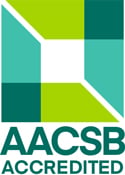Accounting (BS)
Admission to the Accounting major required the completion of the Business Foundation Requirements. Once admitted to the Accounting major, students also complete the following.
Accounting majors or minors must earn a grade of “C”(2.0) or better in all required Accounting and Business Law classes.

Program Requirements
Required General Education
* ECON 201 and MATH 130 must be completed for admission to the major.
Prerequisites: none
Goal Areas: GE-05
Prerequisites: Satisfy Placement Table in this section, or grade of "C" (2.0) or better in either MATH 112 or MATH 115.
Goal Areas: GE-04
Choose 3 Credit(s).
Prerequisites: none
Goal Areas: GE-06, GE-09
Prerequisites: none
Goal Areas: GE-06, GE-08
Prerequisites: none
Goal Areas: GE-06, GE-09
Prerequisites: none
Goal Areas: GE-06, GE-09
Prerequisites: none
Goal Areas: GE-09, GE-10
Prerequisites: none
Goal Areas: GE-06, GE-09
Prerequisites to the Major
Prerequisites: MATH 112 or MATH 115or MATH 121 or MATH 130 or MATH 181
Prerequisites: none
Prerequisites: none
Major Common Core
* Required of all College of Business Majors (34 credits)
Prerequisites: ACCT 200
Prerequisites: none
Prerequisites: none
Goal Areas: GE-05
Prerequisites: MATH 112 or equivalent
Goal Areas: GE-02, GE-04
Prerequisites: ACCT 200
Prerequisites: none
Prerequisites: none
Prerequisites: ISYS 101 or CIS 101
Prerequisites: ECON 207
Prerequisites: FINA 362, MRKT 210, MGMT 230, MGMT 346
Prerequisites: none
Required for all Accounting Majors (C or better required) - Choose 28 Credit(s).
Prerequisites: ACCT 200
Prerequisites: ACCT 200
Prerequisites: ACCT 300
Prerequisites: ACCT 200, ACCT 210
Prerequisites: none
Prerequisites: ACCT 200, ACCT 210
Prerequisites: ACCT 301
Prerequisites: ACCT 300, ACCT 330
Prerequisites: ACCT 300
Prerequisites: BLAW 200
Major Unrestricted Electives
Optional Applied Experience - Choose 0 - 3 Credit(s).
Prerequisites: Must be admitted to a major.
Degree Plan
First Year
Fall - 16 Credits
Prerequisites: none
Prerequisites: Satisfy Placement Table in this section, or grade of "C" (2.0) or better in either MATH 112 or MATH 115.
Goal Areas: GE-04
Spring - 15 Credits
Prerequisites: MATH 112 or MATH 115or MATH 121 or MATH 130 or MATH 181
Prerequisites: none
Prerequisites: none
Goal Areas: GE-05
Prerequisites: none
Second Year
Fall - 16 Credits
Prerequisites: ACCT 200
Prerequisites: none
Prerequisites: ACCT 200
Prerequisites: none
Prerequisites: ACCT 200
Spring - 13 Credits
Prerequisites: MATH 112 or equivalent
Goal Areas: GE-02, GE-04
Prerequisites: ACCT 200
Prerequisites: none
Third Year
Fall - 15 Credits
Prerequisites: none
Goal Areas: GE-05
Prerequisites: ISYS 101 or CIS 101
Prerequisites: ACCT 300
Prerequisites: ACCT 200, ACCT 210
Spring - 15 Credits
Prerequisites: ACCT 200, ACCT 210
Prerequisites: ECON 207
Prerequisites: none
Prerequisites: ACCT 300, ACCT 330
Fourth Year
Fall - 14 Credits
Prerequisites: ACCT 301
Prerequisites: ACCT 300
Spring - 16 Credits
Prerequisites: BLAW 200
Prerequisites: FINA 362, MRKT 210, MGMT 230, MGMT 346
Transfer Pathways
A Transfer Pathway is a partnership between the Minnesota community colleges and Minnesota State University, Mankato. The Pathway suggests a plan for students with a specific associate degree to complete the last two years for a designated bachelor’s degree.
Students who are transferring to Minnesota State Mankato from a Minnesota community college should meet with an advisor in your college advising office to ensure the Pathway is an appropriate option for completing your degree.
More information on Transfer Pathways is available at https://www.mnsu.edu/transfer-pathways/
Third Year
Fall - 15 Credits
Prerequisites: Satisfy Placement Table in this section, or grade of "C" (2.0) or better in either MATH 112 or MATH 115.
Goal Areas: GE-04
Prerequisites: none
Prerequisites: ACCT 200
Prerequisites: none
Spring - 15 Credits
Prerequisites: ISYS 101 or CIS 101
Prerequisites: ACCT 300
Prerequisites: ACCT 200, ACCT 210
Prerequisites: ACCT 200
Fourth Year
Fall - 15 Credits
Prerequisites: ACCT 200, ACCT 210
Prerequisites: ECON 207
Prerequisites: none
Prerequisites: ACCT 300, ACCT 330
Spring - 15 Credits
Prerequisites: ACCT 301
Prerequisites: ACCT 300
Prerequisites: BLAW 200
Prerequisites: FINA 362, MRKT 210, MGMT 230, MGMT 346



